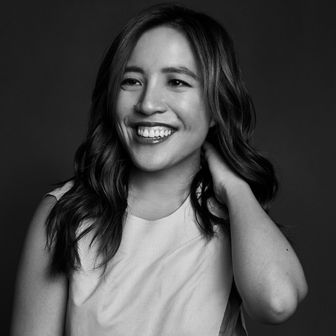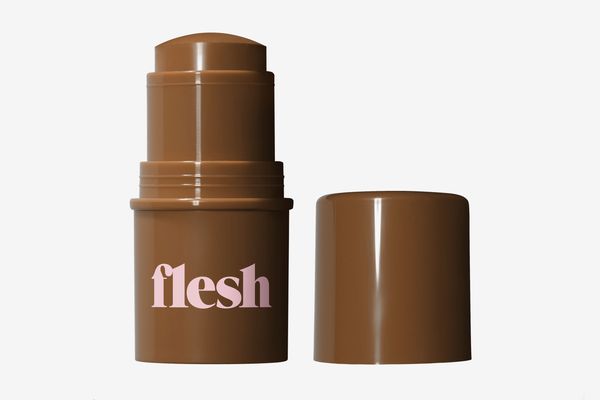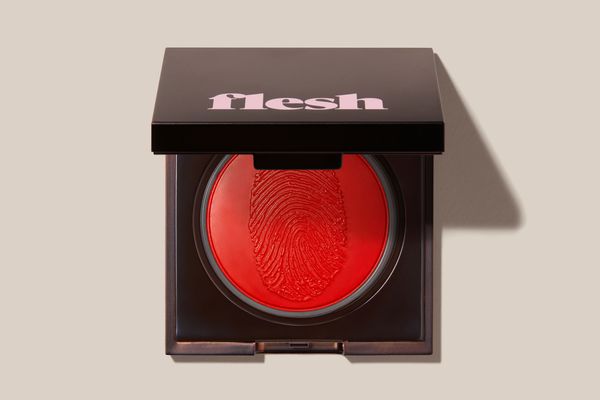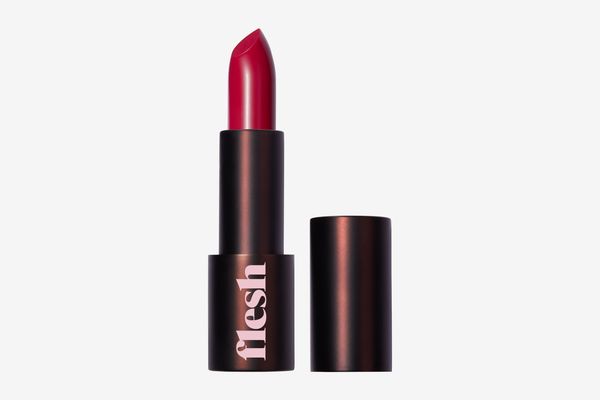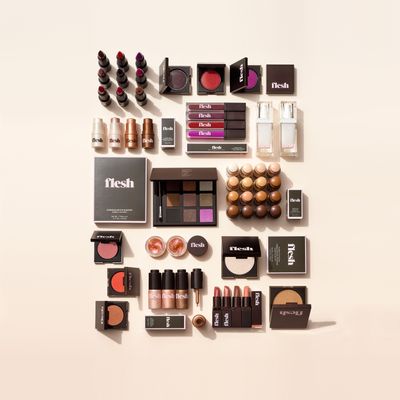
If you’re looking for Allure founder Linda Wells’s new beauty line, don’t Google the word flesh. Incredibly vivid NSFW sites will pop up on your screen. Instead, try searching for “Flesh Beauty,” the provocative moniker Wells chose for the collection, which she conceived in under a year as part of her new role as Revlon’s chief creative director.
In modern-day parlance, Wells (a former Cut beauty-editor-at-large) created a “woke” beauty line. The name is meant to evoke sensuality and carnality, but it’s also a nod to the old-school limitation of the phrase “flesh tone.” Wells hopes to expand the meaning of that concept with a mix of products in vivid colors and nudes to suit all different skin tones — including 40 shades of foundation.
Flesh launches today in over 500 Ulta stores. Read on for the Cut’s conversation with Wells about the beauty world after Fenty, life after Allure, and why she picked such a polarizing name.
So Flesh, the name. Some people like it; some people hate it. How did you arrive at it?
I had the name immediately. It was the only name I had. I wanted something short, fast, provocative, kind of uncomfortable, and potentially off-putting — which has proven to be the case. I went out for dinner with my son, who is 20, and told him about the name. He was like, “Mom, that’s disgusting. That sounds bad.”
I think some people think of it like The Walking Dead. Others think of it the way I thought of it — skin, sensuousness, and being comfortable in your skin.
Why did being uncomfortable appeal to you?
Beauty can be so bland. So many people seem to be aiming at an ideal of prettiness that has no edges to it. I remember I spoke to a model who did a lot of beauty ads in the ’90s. The look she was told to go after was a kind of passive placidity. Who wants to be passive? It’s that middle-of-the-road-ness I wanted to avoid — being nothing, standing for nothing.
In my first issue of Allure, a lot of people in the beauty industry were not just unhappy but angry. They felt that it was offensive and not pretty. It was never my aim to make something just pretty. Alexander Liberman, the creative director of Condé Nast, used to say, “Avoid visions of loveliness.” Anything too pretty and too passive was going to be boring. Beauty can be challenging, emotional, and loaded, and it’s a subject full of tension. That’s what attracts me to it. That’s what I wanted to come through.
You were a beauty editor for so long. Did you ever think you would create a beauty line?
I did. I was always thinking about it, although it wasn’t top of mind. When you’re a beauty editor, you try things all the time and think, I wish they had done this. I wanted something practical that wasn’t a diminishment of style. Something comfortable, easy to use, and interesting — the dream. The marrying of comfort and style was what I was thinking about — like when designers like Valentino and Gucci do really gorgeous tracksuits.
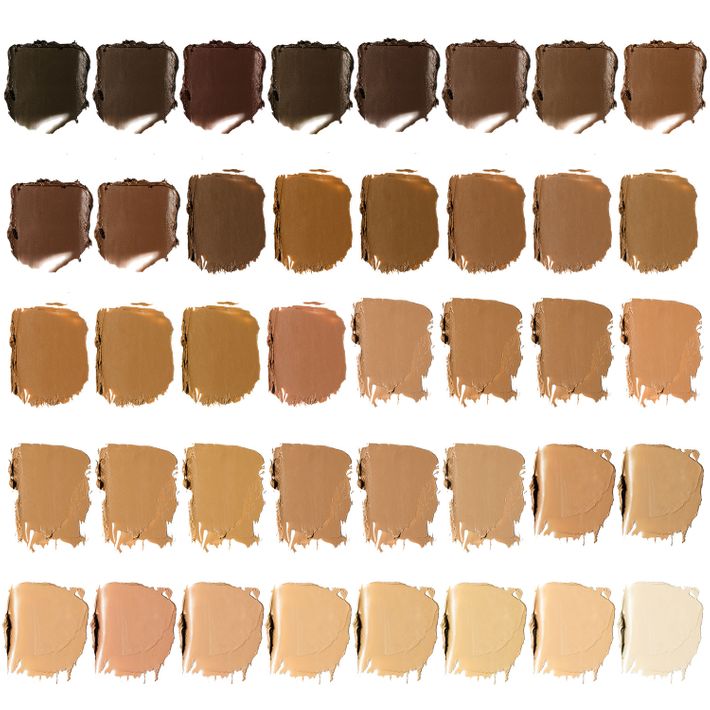
When you think about who Flesh is for, compared to the other beauty lines that are out there? Who do you feel like it speaks to, who otherwise isn’t being spoken to?
One point of difference is the way that all the products are created for different skin tones. “Flesh” is a nod to how completely wrong “flesh tone” — that peachy beige — has always been. Rhi’s line has 14 highlighters, designed for all different skin tones. We have nude lipsticks, lots of different ones. But we also have really vivid colors.
I also think of it as a beauty line for beauty editors — I hope the audience is bigger than that, but I mean that it’s a discerning group. They’re people who want their skin to look great and who want to play. So there’s a palette of neutrals and then a bright lipstick or eye shadow to have your moment of style.
Flesh is produced by Revlon. There’s this beauty conspiracy theory that in a big company, everything is produced in the same place and they just slap different labels on it, so that, for example, a prestige mascara is the same as a drugstore one.
With Flesh, we wanted to create a prestige brand, which meant we worked with expensive formulas. The brand is owned and incubated by Revlon but it doesn’t share any formulas for packaging with Revlon. We developed those with outside suppliers.
The suppliers are fascinating. They have shows all over the world and they take up football fields’ worth of space. You have to wear sneakers and take breaks. And then once you find a formulation, you have to work on it and refine it and create the shades. It’s not just like ordering food from a menu.
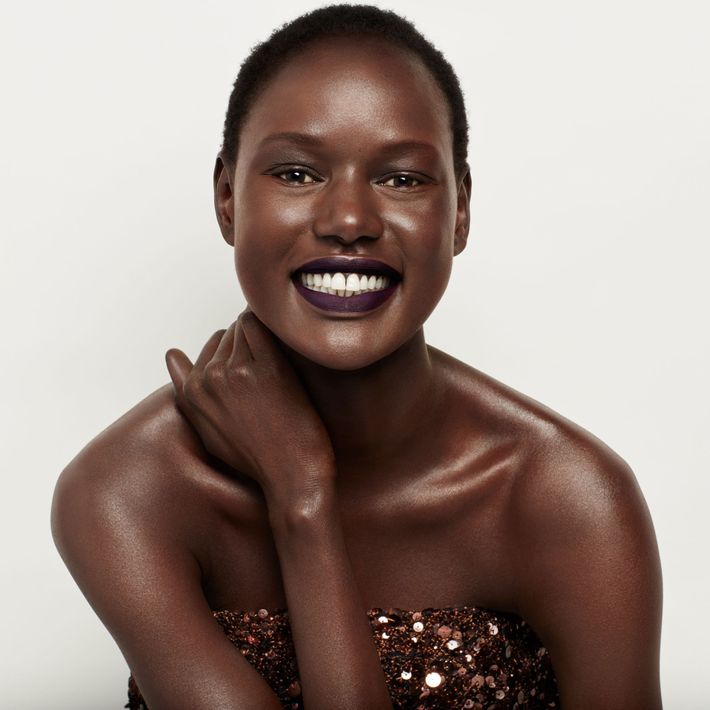
What was the first product?
The stick foundation (Flesh Firm Thickstick Foundation) is the first one I wanted to create, and the one that was the hardest. I loved the idea of a stick foundation, but I would get home, try it out, and realize it was gray. I never found one that worked for me. It required a lot of formulating. With the foundations for darker skin tones, we reformulated it four times. The darker shades have a different formula than the lighter ones. You can’t just add more pigment to a darker-skin formula. It might look darker in the tube, but then look ashy on the skin.
You have 40 foundation shades. Of course, Rihanna did it, too. Did you feel like you also had to do 40 shades to keep up?
Absolutely. [Rihanna] set the bar. We were in the process of making the stick foundation and hadn’t said how many shades. But when it came out, I knew that was the new reality, the new normal. She made that happen. And then it was, should we do 38 or 43?
Why not 43?
More shades might offer service to the consumer, but there is a point. I don’t want it to be more confusing. The idea is to make things simple. To me, it isn’t just a numbers game. What are you providing? Do you do a lot of undertones? Within each undertone, we want people to find a match.
Inclusivity and diversity are big buzzwords today. Some might even call them a trend. How do you feel about that?
I hope not. A trend suggests it can go out of style. This is a change in behavior, approach, and business. It has to be a new reality. It’s not just fashion. It’s sad we didn’t think about it before. It’s really important.
A criticism of magazines past was that they weren’t as inclusive as they could have been. As a magazine founder, do you feel like that criticism is fair?
Yes, I think it is fair. We didn’t do enough. I’m really happy that is changing.
You loved your job as a beauty editor. You were with Allure for 24 years. You’re on a slightly different career path now, although in the same industry that you love. I think everyone can relate to the feeling of having doors close unexpectedly. What is your advice to people when that happens?
It’s been happening more and more in the magazine industry and media — the idea that you’re going to lose your job and you’re not going to want to. You do feel like, Am I in a dying industry and clinging to the side of a cliff? It’s a tough way to live. For me, I had to recognize I was sad. I’m not someone who normally believes that things take time, but you do have to give it some time. I gave myself a bit to clear my head. A lot of people said, “Don’t take any job for a year and let yourself explore.” I thought, That’s a nice thing if you have a Swiss bank account. But I have two kids in college. Going to a yurt is not my style. I really like to work and it’s important to work.
I loved being a beauty editor. But I was really, really lucky to have experienced that world at one of its peaks. The moments were fantastic and the people were great. I realized that I didn’t want the end of that career to be what defined me. I wanted to get back into what I loved the most, which was reporting and talking to people, and transfer those skills to something I didn’t know how to do. Learning something entirely new was really fun and gratifying. There are a lot of similarities in starting a beauty line and a magazine — there’s the decision-making and the clarity. Also, having a team that shares that mission and the support of a corporation. If you can write, express yourself, define a mission, and have a visual sense, it all feeds well into lots of different careers.
People have also been really generous. There can be that sense in this industry, Are people nice to me because they can get something? But you build real relationships. Realizing that felt really good. From the outside, people think beauty and fashion are not the nicest. I have so much evidence to the contrary.
How do you feel now when you see Allure out in the world, on the newsstand?
I feel like it’s its own entity. It has its own identity. I’m very happy when I see it. I’m happy to see it still standing. It’s like seeing a child grow and be on its own. I want it to continue forever.
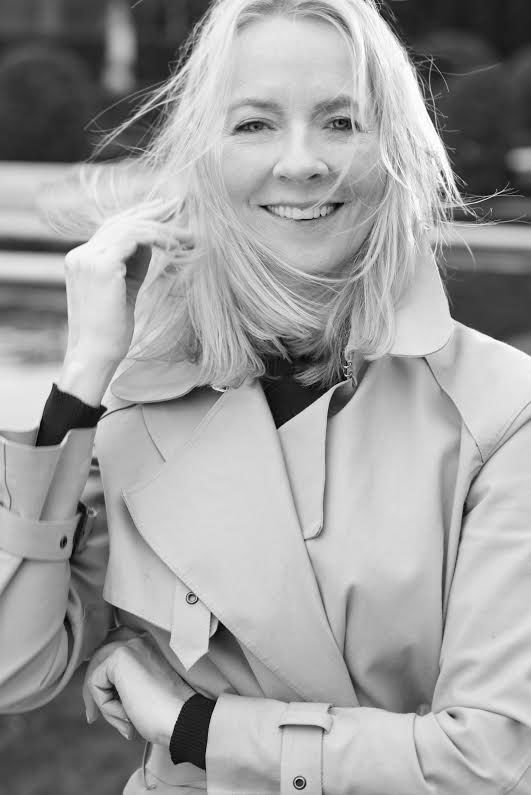
If you buy something through our links, New York may earn an affiliate commission.


